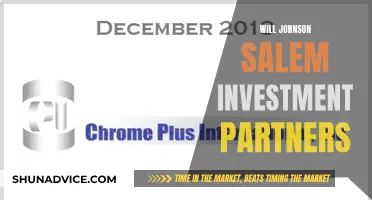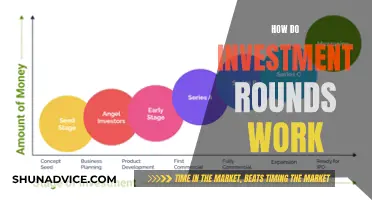
Paying off your mortgage or investing your money elsewhere is a common dilemma for homeowners. The answer depends on your individual circumstances, but there are several factors to consider when making your decision. These include your risk tolerance, the interest rate on your mortgage, your financial goals, and how close you are to retirement.
Paying off your mortgage early can provide peace of mind and save you money on interest payments. However, it also means tying up your wealth in an illiquid asset, and you may miss out on tax deductions and higher returns from other investments. On the other hand, investing your money can potentially provide higher returns, but it comes with a higher risk of losing some or all of your investment.
Ultimately, the decision to pay off your mortgage or invest depends on your financial goals and risk tolerance. If you are averse to debt and value the security of owning your home debt-free, paying off your mortgage may be the best option. However, if you are comfortable with risk and prioritising investment returns, then investing your money elsewhere may be the better choice.
| Characteristics | Values |
|---|---|
| Risk tolerance | Depends on the individual |
| Retirement planning | Closer to retirement, paying off mortgage may be preferable |
| Interest rate | High interest rate: pay off mortgage; Low interest rate: invest |
| Mortgage stage | Early: pay off mortgage; Late: invest |
| Tax deductions | Paying off mortgage may result in loss of tax deductions |
| Prepayment penalties | May be incurred when paying off mortgage early |
| Rate of return | Higher rate of return: invest; Lower rate of return: pay off mortgage |
| Liquidity | Investments are more liquid than money put into a mortgage |
| Peace of mind | Paying off mortgage can provide peace of mind by reducing debt |
| Opportunity cost | Paying off mortgage may hinder other financial goals |
| Wealth accumulation | Paying off mortgage can help build home equity |
| Budget flexibility | Paying off mortgage can free up money for other purposes |
What You'll Learn

The pros and cons of paying off a mortgage early
Paying off your mortgage early can be tempting, but it's important to weigh the pros and cons before making a decision. Here are some advantages and disadvantages to consider:
Pros of Paying Off a Mortgage Early:
- Interest savings: Paying off your mortgage early can result in significant interest savings. By reducing the principal amount, you will pay less interest over the life of the loan.
- Peace of mind: Being debt-free can provide a sense of financial security and reduce stress. It also eliminates the risk of missing mortgage payments and facing foreclosure during financial difficulties.
- Build equity faster: Paying down your mortgage faster increases the equity in your home, which can be leveraged for refinancing or accessing other forms of credit, such as a home equity loan or line of credit (HELOC).
Cons of Paying Off a Mortgage Early:
- Opportunity cost: Paying extra towards your mortgage means sacrificing other financial goals, such as investing for retirement or building an emergency fund.
- Wealth is tied up: Real estate is an illiquid asset, meaning it can't be easily converted into cash. If you need money during a financial emergency or investment opportunity, selling your house may not be a quick or convenient option.
- Loss of tax benefits: Paying off your mortgage early may result in losing tax deductions associated with mortgage interest and retirement account contributions.
- Prepayment penalties: In some cases, paying off your mortgage early can incur prepayment penalties, so it's important to review the terms of your mortgage agreement.
Ultimately, the decision to pay off your mortgage early depends on various factors, including your financial situation, risk tolerance, interest rates, and investment opportunities. It's essential to carefully consider both the pros and cons before making a decision that aligns with your short-term and long-term financial goals.
ETFs: Invest Now or Later?
You may want to see also

The opportunity cost of investing
Here's an example to illustrate this concept. Let's say you have an extra $300 per month, and you're trying to decide whether to put it towards paying off your mortgage early or investing in an index fund. If you choose to invest, you could potentially earn a higher return on your investment than the interest rate on your mortgage. Historically, the S&P 500 has returned an average of around 10% annually since its inception in 1926, which is significantly higher than the average mortgage rate. So, by investing your money instead of paying off your mortgage early, you're giving up the opportunity to earn those potentially higher returns.
On the other hand, if you choose to pay off your mortgage early, you're giving up the opportunity to invest your money elsewhere and potentially earn higher returns. This is especially true if you have a low-interest mortgage rate. By paying off your mortgage early, you may be sacrificing the potential for higher investment returns in favour of the guaranteed return of saving on mortgage interest.
It's important to note that there are other factors to consider as well, such as your financial situation, risk tolerance, tax implications, and personal goals. Investing in the stock market or other assets carries the risk of losses, while paying off your mortgage early provides a guaranteed return in the form of interest savings. Additionally, mortgage interest is often tax-deductible, which can further reduce the cost of carrying a mortgage.
Ultimately, the decision to pay off your mortgage early or invest depends on your individual circumstances and financial goals. It's crucial to weigh the opportunity cost of investing against the potential benefits of paying off your mortgage early to make an informed decision that aligns with your financial priorities.
Investing: Nice People, Psychopaths?
You may want to see also

The risks of investing
Investing in the market instead of paying off your mortgage early comes with several risks. Here are some key considerations:
Market Risk and Volatility
The stock market can be volatile, and investments can lose value or even their entire value if market conditions turn unfavourable. Stocks, bonds, mutual funds, and exchange-traded funds are all susceptible to market risk. Even conservative investments like certificates of deposit (CDs) are not immune to inflation risk, which may cause them not to keep pace with the rising cost of living.
Liquidity Risk
Liquidity risk refers to the difficulty of cashing out of an investment. Some investments are more liquid than others, and it may be challenging to access your money when needed. This is especially true for complicated investment products or those with penalties for early withdrawal.
Concentration Risk
The more "financial eggs" you have in one basket, the greater the risk. For example, investing all your money in a single stock increases your risk compared to diversifying across various assets. Diversification can help manage systemic and non-systemic risks.
Opportunity Cost
Investing in the market instead of paying off your mortgage early means forgoing the interest savings you would have achieved by reducing your principal amount early on. Over time, these interest savings can amount to thousands of dollars.
Tax Implications
Paying off your mortgage early may result in losing potential tax deductions on mortgage interest payments. These deductions can increase your tax refund and lower your taxable income. Consult a tax advisor to understand the tax implications for your specific situation.
Prepayment Penalties
Depending on your lender, you may incur prepayment penalties for paying off your mortgage too quickly, typically within the first few years of the loan. These penalties are usually based on the outstanding principal balance.
Investment Returns May Vary
While investing in the stock market can provide sizable returns, there is also the risk of sizable losses. The market's volatility is a double-edged sword, and a 10% investment gain is not always achievable, especially after factoring in fees, taxes, and inflation. It's essential to have realistic expectations and understand that returns may vary.
Fidelity Investments: Customer Feedback
You may want to see also

The pros and cons of investing
Investing your money can be a great way to grow your wealth, but it's not without its risks. Here are some pros and cons of investing to consider when deciding whether to invest or pay off your mortgage:
Pros of Investing:
- Higher Returns: Investing in the stock market has historically provided higher average returns than paying off a mortgage early. For example, the S&P 500 has returned an average of 10-11% annually since its inception, significantly higher than most mortgage rates.
- Liquidity: Investing provides more flexibility as stocks, bonds, and mutual funds can be easily sold and converted to cash if needed. In contrast, selling a house and accessing the equity tied to it is a lengthy process.
- Employer Match: If you invest in a retirement account and your employer offers matching contributions, you can benefit from "free money" and compound earnings over time.
Cons of Investing:
- Higher Risk: The stock market is volatile, and there is always the risk of losing some or all of your investment. This risk may be particularly uncomfortable if you are close to retirement and have less time to recover from potential losses.
- Increased Debt: If you invest instead of paying off your mortgage, you will remain in debt for a longer period. This may be a concern if you are averse to debt or prefer the peace of mind of owning your home outright.
- Opportunity Cost: Investing in the market means forgoing the guaranteed return of saving on mortgage interest. Additionally, investing in a fully taxable brokerage account may result in lower net returns than investing in a tax-advantaged retirement account.
Ultimately, the decision to invest or pay off your mortgage depends on various factors, including your financial situation, risk tolerance, interest rates, and proximity to retirement. Consulting a financial advisor can help you make an informed decision that aligns with your goals and comfort level.
Alpha Investments: Why the Hate?
You may want to see also

Factors to consider when deciding whether to invest or pay off a mortgage
There are several factors to consider when deciding whether to invest or pay off a mortgage. Here are some key points to keep in mind:
Risk Tolerance
For many homeowners, the decision comes down to their tolerance for risk. Paying off a mortgage is traditionally safer, as it's predictable and you know exactly how much you're saving. On the other hand, investing in the stock market, for example, comes with higher risk but also the potential for higher rewards. Ask yourself how comfortable you are with taking on investment risk and the potential for losses.
Mortgage Stage
If you're in the early years of your mortgage, it's generally smarter to pay down your mortgage aggressively to avoid paying more in interest over the long term. However, if you're well into a long-term mortgage (e.g., a 30-year mortgage), you're likely paying more of the principal and less interest, which can free up some room to focus on investing.
Interest Rates
Compare your mortgage interest rate to expected investment returns. If your mortgage rate is lower than the potential returns from investing, you may be better off investing. Additionally, consider if your mortgage rate is higher than average; in this case, you may want to prioritize paying off the mortgage to reduce the interest burden.
Emergency Savings and Retirement
Ensure you have sufficient emergency savings and are on track with your retirement savings before deciding to pay off your mortgage or invest. It's crucial to have a financial cushion for unexpected expenses and to plan for your retirement simultaneously.
Debt and Income
Evaluate your complete financial picture, including any other debts you may have. Assess whether paying off your mortgage early will help you save on interest and maximize your investment potential. Also, consider your prospects for increasing your income, which can impact your ability to invest or pay off your mortgage faster.
Opportunity Cost
Understand the opportunity cost of each decision. Paying off your mortgage early can provide peace of mind and reduce interest costs, but it may delay other financial goals, such as building retirement savings or investing in other opportunities.
Tax Implications
Consider the tax implications of both options. Paying off your mortgage early may result in losing tax deductions for mortgage interest, while investing in certain retirement accounts can provide tax advantages. Consult with a tax advisor to understand the tax consequences of each choice.
Remember, there is no one-size-fits-all answer, and the best decision depends on your personal financial situation, risk tolerance, and financial goals. Consult a financial advisor to help you assess your specific circumstances and make an informed choice.
The Myth of Responsible Investing: Does Doing Good Pay Off?
You may want to see also







